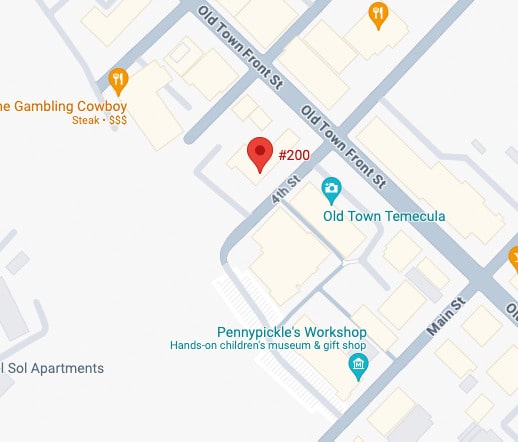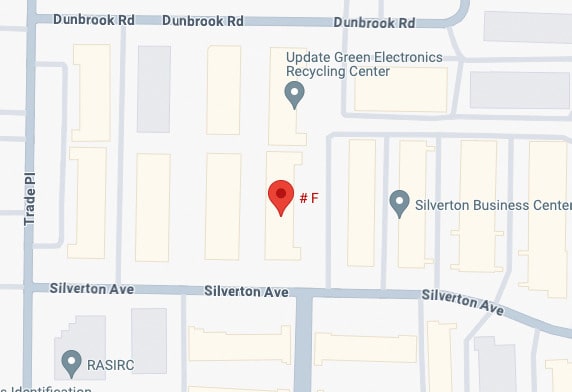Learning your child has been arrested in California can be a devastating and confusing experience. Emotions run high, and the pressure to act quickly can cloud judgment. In the rush to obtain your child’s release, it is easy to make mistakes that can have long-lasting consequences.
In this article, you learn the pitfalls parents often encounter when bailing out their children in Temecula, California. With this knowledge, you can make informed decisions for yourself and your child and avoid these mistakes.
Some common mistakes include the following:
-
Making Rash Decisions Without Thinking Through
When your child is arrested in California, the urge to act quickly and obtain their release from jail can be overwhelming. However, rushing into bailing them out without taking the time to think can have serious consequences.
You, therefore, want to pause and assess the situation before making any hasty decisions because of the following reasons:
Financial Burden
Bail amounts can be excessive, and rushing into paying them can significantly strain your finances. You may need to take out loans, deplete savings, or sell assets to cover the cost. This financial burden can have long-term ramifications for you and your family.
Lack of Information
Before making any financial commitments, gathering all the necessary information about your child’s situation is essential. This includes understanding the charges against your child, the bail amount set, and the potential legal consequences.
Ignoring Underlying Issues
Rushing to bail out your child without addressing the underlying issues that led to their arrest can be detrimental. Ignoring these issues allows them to fester and potentially lead to future problems.
Enabling Behavior
Bailing out your child without holding them accountable for their actions can send the wrong message. It can foster a sense of entitlement and encourage them to repeat their mistakes.
Your child could refuse to obey the bail arrangements, creating potential issues in the future. A pattern of your child committing offenses might emerge if they know you'll always post their bail without consideration.
Hindered Legal Defense
Rushing to bail out your child can sometimes complicate their legal defense. You want to consult an attorney who will help ensure that your child’s legal rights are protected, and that the best course of action is taken.
Your lawyer will also help you understand your child’s legal options and the potential consequences of their actions if they are convicted.
Also, before bailing out your child, you want to:
- Explore alternatives: Consider alternative release options like supervised release or pre-trial diversion programs.
- Communicate openly: Have an honest and open conversation with your child about the situation and their responsibility for their actions.
- Address underlying issues: Explore the underlying reasons behind your child's behavior and seek appropriate help, such as counseling or therapy.
Taking the time to think through the situation calmly and rationally will allow you to make informed decisions that are in the best interest of your child and your family.
-
Paying the Full Amount of the Set Bail
Choosing to pay full bail for your child's release can be a significant financial risk with long-term implications. While securing your child's freedom is a top priority, weighing the potential costs and exploring alternative options is crucial.
Paying full bail can be a financial risk because of the following:
High Bail Amounts
Bail can be expensive, ranging from thousands to even millions of dollars. Paying this amount can deplete your savings, require you to take out loans, or force you to sell assets. This financial burden can significantly impact your and your family's financial stability, affecting your ability.
You instead engage a bail bonds company. Utilizing a bail bond company allows you to pay a non-refundable premium (usually 10% of the bail amount) instead of the full bail. This significantly reduces your upfront financial burden while ensuring your child's release.
No Guarantee of Return
Even after paying the full bail amount, there is no guarantee your child will appear on all court dates or comply with release conditions. If they fail to appear, the court will forfeit the entire bail amount, leaving you with no financial recourse.
Loss of Opportunity Cost
The money used to pay bail could be invested in other areas, such as your child's education, retirement savings, or starting a business. You may miss out on potential financial benefits and opportunities for yourself and your family by paying full bail.
Instead of posting cash bail, you can instead use alternative options, such as:
- Property Bond. If you own property in your name, you may use it as collateral for your child's release instead of paying cash. This option can be beneficial if you have limited liquid assets.
- Release on Your Own Recognizance (OR). In certain cases, the court may release your child without requiring bail. This typically depends on the severity of the charges, your child's criminal history, and their ties to the community.
- Fundraising. Consider organizing a fundraiser to help cover the cost of bail. This can be a good option if you have a strong network of friends and family willing to support your child.
- Pre-Trial Diversion Programs. Some jurisdictions offer pre-trial diversion programs that allow individuals to avoid prosecution by completing specific requirements, such as community service or counseling.
You want to seek counsel from your lawyer before making any financial decisions regarding bail. They will guide you through the process, explain your rights, and ensure you make informed choices that protect your financial well-being.
By exploring alternative options and considering the risks associated with paying full bail, you can make responsible financial decisions that prioritize your child's release while safeguarding your family's financial stability.
-
Embarking on Long-Distance Travel to Bail Out Your Child
Learning that your child has been arrested in a distant location can be a devastating and confusing experience. The news can be so devastating that it clouds your judgment.
In the rush to have your child released, consider undertaking long-distance travel to be present and offer support. However, before embarking on such a journey, carefully weigh the potential benefits and drawbacks.
You, therefore, want to consider the following factors:
Urgency
You should assess the urgency of your presence. Can your child's legal needs be adequately addressed without your physical presence? Consulting with a lawyer familiar with the legal system in the location where your child has been arrested can provide valuable insights and guidance on whether your travel is necessary.
Financial Impact
Long-distance travel can be expensive, involving flights, accommodation, transportation, and other unforeseen costs. You want to weigh the financial burden of your travel against the potential benefits to ensure responsible resource allocation.
Emotional Toll
The stress and anxiety of your child's situation, coupled with the demands of travel, can be emotionally draining. You want to consider your mental and physical well-being before committing to a long journey, ensuring you can offer effective support.
Alternative Support Systems
You should explore alternative support networks available in your child's location. Your friends, family members, or local organizations might offer crucial assistance, reducing the need for your immediate presence.
Communication Channels
It is vital to establish clear and reliable communication channels with your child, their lawyer, and relevant authorities. This allows you to stay informed, provide emotional support remotely, and make informed decisions without feeling the pressure to be physically present.
Potential Legal Issues
The charges placed against your child and the legal proceedings of the case may be complex for you, and your presence may not be necessary or beneficial. Consulting with your child's lawyer beforehand can clarify any potential legal complexities surrounding your travel.
You also want to make initial contact with a bail bond company directly by phone to streamline the bailing process without the need for your extensive traveling.
Focus on Long-Term Solutions
While your presence might offer immediate comfort, remember to focus on addressing the underlying issues that led to the arrest and finding long-term solutions. You should, therefore, consider your travel as part of a larger strategy for supporting your child's rehabilitation and future success once they are out of jail.
Utilizing modern technology allows you to handle bail processes remotely, avoiding unnecessary travel expenses. Ultimately, the decision to embark on a long-distance journey to bail out your child is personal and should be based on careful consideration of all the factors involved.
You should weigh the potential benefits against the drawbacks, prioritize your well-being, and seek guidance from legal and support systems before deciding.
-
Improper Communication
In the face of your child's arrest, emotions run high. Parents often feel overwhelmed by the situation, leading to stress and anxiety. This emotional turmoil can significantly impact communication with your child, potentially hindering the bail process and exacerbating the existing challenges.
Lack of openness about the bail amount and collateral can lead to your child missing court dates, compounding legal issues. Transparent communication, including sharing information from the bail bond agent, is crucial to a smooth process.
You want to express frustrations in a friendly manner, thus fostering open and honest communication with your child. You also want to let your child know what you were going through while seeking their bail.
You should inform your child of what is communicated to you by the bail bonds company. You should tell your child about the court proceedings date to ensure that they are aware of when they are required to make an appearance in court.
Improper communication can negatively impact bail resolution in the following ways:
Misunderstandings and Frustration
Poor communication can lead to misunderstandings and confusion, both for the parents and the child. This can create frustration and resentment in the child, further hindering effective collaboration. Lack of clear communication about expectations, responsibilities, and financial considerations can lead to conflict and disagreement.
Missed Information and Crucial Details
Important information about the charges, legal options, and bail process might need to be communicated more effectively, leaving you and your child feeling lost and overwhelmed.
Also, the failure to openly discuss the underlying reasons for your child’s arrest can hinder efforts to address the root of the problem and prevent future incidents.
Breakdown of Trust and Support
Harsh words, accusatory language, and a lack of empathy can damage your parent-child relationship, making building trust and establishing a supportive environment challenging. A critical and judgmental attitude can push the child away, hindering their willingness to share information about their arrest and cooperate with the bail process.
Ineffective Decision-Making
Parents may rush into decisions without fully understanding the situation or exploring all available options without clear and open communication.
Important decisions regarding legal representation, financial arrangements, and the child's future might be made hastily and without proper consideration.
Hindrance to Rehabilitation
Effective communication is vital for supporting the child's rehabilitation efforts. Lack of open dialogue can make addressing underlying issues challenging, offering guidance and holding them accountable for their actions.
Tips for Effective Communication
- Listen Actively And Attentively. Pay close attention to what your child is saying, verbally and non-verbally. Avoid interrupting and allow them to express their feelings and concerns freely.
- Use Clear And Concise Language. Avoid jargon and legal terms that your child might not understand. Explain things in simple terms, and answer any questions they may have honestly and openly.
- Focus On "I" Statements. Instead of blaming and accusing, focus on how your child's actions have affected you. This approach encourages open communication and avoids putting them on the defensive.
- Emphasize Support And Understanding. Let your child know you are there for them and willing to help however you can. This will build trust and encourage them to be open and honest with you.
- Maintain A Calm And Respectful Demeanor. Avoid yelling, arguing, or using hurtful words. Maintaining a calm and respectful tone is crucial for productive communication, even in difficult conversations.
- Seek Professional Help If Needed. If communication is severely strained or you feel overwhelmed, consider seeking professional help from a therapist, counselor, or lawyer. They can provide guidance on how to communicate effectively and navigate this challenging situation.
Note that effective communication is a cornerstone of successfully resolving a child's bail situation. By fostering open dialogue, building trust, and prioritizing understanding, you can constructively support your child, make informed decisions, and navigate this challenging time. You also strengthen the bond with your child during this difficult time.
-
Bailing Out Your Child at a Later Time
Some parents could decide to bail out their children after they have spent a significant amount of time in jail. You want to first understand the potential repercussions before taking this path.
Some potential negative consequences include the following:
Emotional Distress
Your child may experience significant emotional distress while arrested, including anxiety, depression, and fear. This can have lasting psychological impacts, potentially leading to substance abuse or mental health issues upon release.
Increased Chances of Committing the Same Mistake Again
The harsh reality of jail that your child will experience can lead to negative influences and peer pressure, increasing the risk of your child re-offending upon release. There are a lot of children with bad influence arrested in the same facility that could influence your child into becoming a rogue.
Limited Access to Resources
Access to essential resources like legal representation, counseling, and educational programs can be limited within the jail system, hindering your child's ability to address underlying issues and prepare for reintegration into society.
Strained Relationship
Choosing not to bail out your child can strain your relationship and create feelings of resentment and anger. Open communication and ongoing support are essential to maintaining a healthy bond despite this difficult decision.
Negative Public Perception
Depending on the charges and community dynamics, your child might face negative judgment and social stigma, further hindering their reintegration process.
What Can You Do Instead?
Seek Legal Representation
Ensure your child can access competent legal representation to protect their rights and navigate the legal process effectively.
Connect with Support Networks
Utilize available support networks, such as community organizations, religious groups, or family members, to offer additional guidance and assistance.
Develop a Reintegration Plan
Work with your child to develop a structured plan for reintegration into society upon release, focusing on housing, employment, education, and ongoing support systems.
Address Underlying Issues
Encourage your child to address the root causes of their behavior through therapy, counseling, or rehabilitation programs, reducing the risk of re-offending.
The decision to keep your child in jail for some time before bailing them out should be made on a case-by-case basis, as advised by your lawyer, considering the specific circumstances and potential consequences.
This choice should not be seen as a form of punishment but rather as an opportunity for reflection, growth, and positive change.
Find a Reliable Bail Bonds Company Near Me
Bailing out a child can be emotional, with difficult choices and potential pitfalls. Recognizing and avoiding the common mistakes you could make while bailing out your child can significantly impact the outcome of this challenging situation.
By reasoning, exploring alternative options, prioritizing communication, and holding your child accountable for their actions, you can effectively navigate this challenging time and set your child on a path toward positive change.
You should, therefore, remember that bailing out your child is not just about securing their immediate release; it is also about addressing the underlying issues that led to their arrest and fostering their future growth and well-being.
You want to seek the counsel of a reputable bail bonds company that will help you post bail in Temecula. At Justice Bail Bonds, we have experienced bail bondsmen ready to take you through the bailing process. Contact us today at 714-541-1155 for more information.










